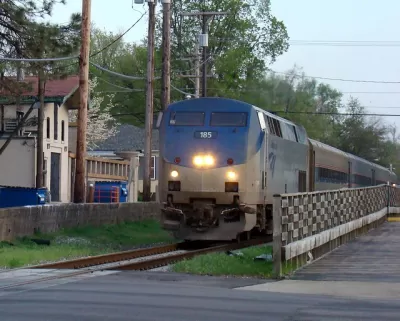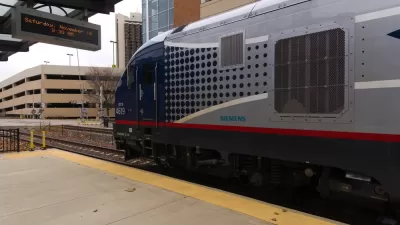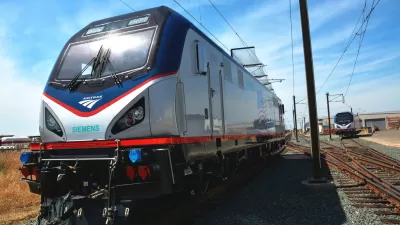Long awaited improvements on the Amtrak route between Chicago and St. Louis are being delayed again, this time because of trouble installing positive train control (PTC).

Faster rail service will not be ready by the end of this year as the Illinois Department of Transportation (IDOT) had once hoped. Trains are still unable to exceed 70 miles per hour along the Alton-Granite city corridor, but when work is done, trains will be able to move at 90 mph speeds across the whole route. IDOT now says that improvement will occur in 2020, but has yet to set a date for when train will reach 110 mph speeds the project originally sought.
"The time needed to install and test a new GPS-related safety technology positive train control, is the reason for the longer-than-expected implementation, officials say," Mark Schlinkmann reports for the St. Louis Post-Dispatch. Positive train control (PTC) is a federally mandated safety protocol that was not required when the project started. "The upgrade of the corridor, begun in 2010 and largely finished in 2017, also includes installation of new rails and concrete ties, new Amtrak stations in Alton and elsewhere and improved street crossing gates to keep vehicles from weaving around crossing bars," Schlinkmann writes.
Many upgrades to the route not related to PTC are already complete. "Other improvements were aimed at reducing delays that sometimes make trips longer than scheduled, such as adding or lengthening second-track segments and sidings so two trains can run simultaneously in more areas," Schlinkmann reports.
FULL STORY: Faster speeds on Amtrak route to Chicago delayed again

Maui's Vacation Rental Debate Turns Ugly
Verbal attacks, misinformation campaigns and fistfights plague a high-stakes debate to convert thousands of vacation rentals into long-term housing.

Planetizen Federal Action Tracker
A weekly monitor of how Trump’s orders and actions are impacting planners and planning in America.

Chicago’s Ghost Rails
Just beneath the surface of the modern city lie the remnants of its expansive early 20th-century streetcar system.

Bend, Oregon Zoning Reforms Prioritize Small-Scale Housing
The city altered its zoning code to allow multi-family housing and eliminated parking mandates citywide.

Amtrak Cutting Jobs, Funding to High-Speed Rail
The agency plans to cut 10 percent of its workforce and has confirmed it will not fund new high-speed rail projects.

LA Denies Basic Services to Unhoused Residents
The city has repeatedly failed to respond to requests for trash pickup at encampment sites, and eliminated a program that provided mobile showers and toilets.
Urban Design for Planners 1: Software Tools
This six-course series explores essential urban design concepts using open source software and equips planners with the tools they need to participate fully in the urban design process.
Planning for Universal Design
Learn the tools for implementing Universal Design in planning regulations.
planning NEXT
Appalachian Highlands Housing Partners
Mpact (founded as Rail~Volution)
City of Camden Redevelopment Agency
City of Astoria
City of Portland
City of Laramie




























